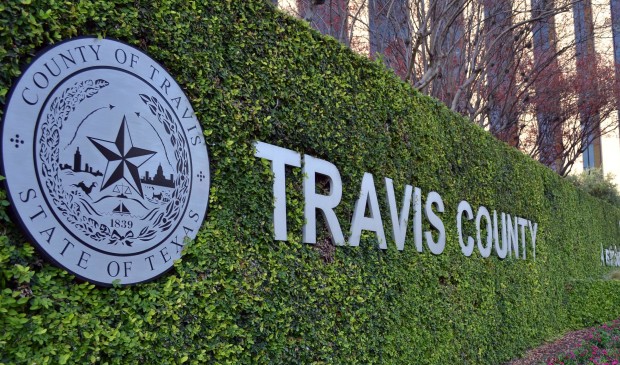Travis County braces for new annexation law
Wednesday, November 29, 2017 by
Caleb Pritchard The state’s new law that will make municipal annexations more difficult will also bring new complications for Travis County, the Commissioners Court learned on Tuesday.
Scheleen Walker, long-range planning manager at the Transportation and Natural Resources Department, told the court to expect a mixed bag that could mean potentially more county parks, along with higher costs of road maintenance.
“We build new roads and the cities … annex them, so we generally maintain about the same number of miles that we have to maintain,” Walker reported. “We do believe that that equilibrium might come unbalanced, and may require more staff in the future.”
The new law, known as Senate Bill 6, came out of the 85th Texas Legislature’s special session this past summer. Three Central Texas Republicans authored the bill: Sen. Donna Campbell of New Braunfels, Sen. Charles Schwertner of Georgetown and Sen. Dawn Buckingham of Lakeway.
When it goes into effect on Dec. 1, residents of any area targeted for annexation by any city in the county would be entitled to decide their own fate.
The general consensus is that most voters will stiff-arm the overwhelming majority of attempts to put their properties inside any official city limits since that most often leads to higher taxes.
Prior to the new law, the county had assumed a stewardship role for new development outside of any city limits. County Judge Sarah Eckhardt has repeatedly summed up the policy, saying, “It’s the county’s job to make the unincorporated area so nice that some municipality or other will annex it,” an adage she used once again on Tuesday.
However, as that growth and development continues under a new law that makes those annexations more difficult to achieve, the county will not just be stuck with more roads to maintain.
“The immediate effects are going to be in law enforcement and emergency services, because that means the sheriff’s department will be the sole law enforcement authority, other than the state, in the unincorporated areas,” Eckhardt said.
She framed the law as a major divergence from long-range expectations, which held that most if not all of Travis County lands would fall within municipal borders by 2050. That would have necessitated perhaps a retrenchment of the Sheriff’s Office’s operations.
“Now with this legislation, that day is not coming,” she said.
Announcing that he had expected the legislature to eventually pass a law restricting annexations, Commissioner Gerald Daugherty said he was surprised it happened this year and over the opposition of the Texas Municipal League.
“But I do think that cities need to look themselves in the mirror and ask themselves why are they considered so onerous,” Daugherty added, putting the blame squarely on the increased tax liability. Nonetheless, he said the court would have to be mindful of the extra burdens it will inevitably assume under the new law.
One potential option raised by Eckhardt is to lean on Travis County’s various cities, which have broader revenue-raising tools in their toolboxes, for help.
“As a Commissioners Court, we’ve never really delved into the other revenue sources available to cities much and demanded partnership on utilizing those revenues. I think we need to start,” she said.
The Austin Monitor’s work is made possible by donations from the community. Though our reporting covers donors from time to time, we are careful to keep business and editorial efforts separate while maintaining transparency. A complete list of donors is available here, and our code of ethics is explained here.
You're a community leader
And we’re honored you look to us for serious, in-depth news. You know a strong community needs local and dedicated watchdog reporting. We’re here for you and that won’t change. Now will you take the powerful next step and support our nonprofit news organization?









